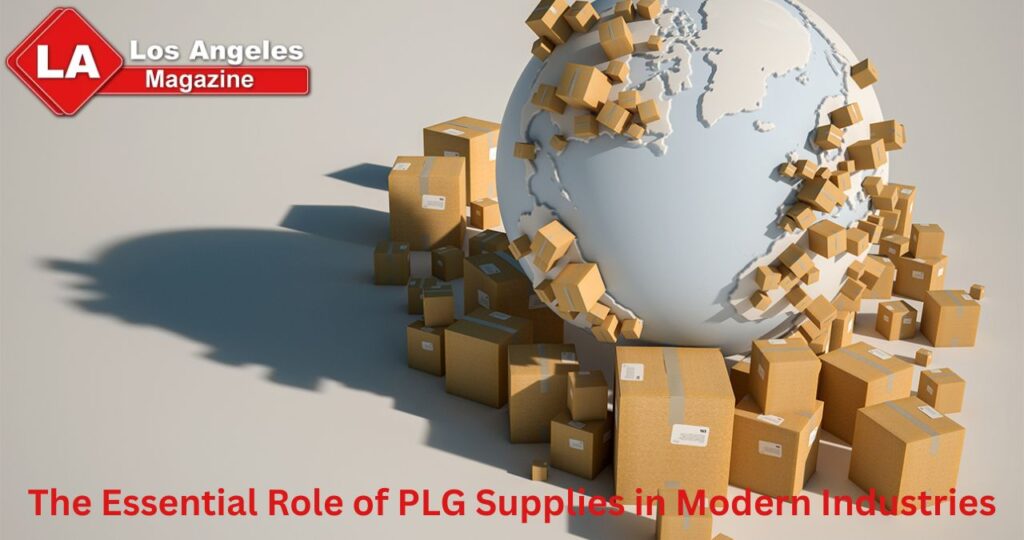In the ever-evolving landscape of modern industries, the need for high-quality supplies and reliable services has become more crucial than ever. Among the various resources companies depend on, PLG supplies have emerged as a vital element in ensuring smooth operations, safety, and efficiency across different sectors. From manufacturing to healthcare, construction to logistics, PLG supplies play a pivotal role in maintaining the productivity and functionality of businesses worldwide. This article delves into the importance of PLG supplies, their diverse applications, and how choosing the right supplier can make a significant difference in operational success.
What Are PLG Supplies?
Before exploring their significance, it’s essential to understand what PLG supplies encompass. The term PLG supplies refers to a wide range of products and equipment used in various professional, logistical, and industrial settings. These supplies include everything from personal protective equipment (PPE), packaging materials, cleaning and maintenance products, safety gear, to specialized tools and machinery required for daily operations.
The acronym PLG can stand for different interpretations depending on the business or sector. In many cases, it relates to Professional, Logistics, and General supplies — covering a broad spectrum of essential items used to support core business activities. These supplies are fundamental in maintaining health and safety standards, enhancing productivity, and ensuring operational continuity.
Applications of PLG Supplies Across Industries
One of the most noteworthy aspects of PLG supplies is their versatility. They are indispensable across a wide array of industries, each relying on specific supplies tailored to their operational requirements. Here’s how different sectors make use of PLG supplies:
1. Manufacturing and Production
In manufacturing environments, PLG supplies include tools, machinery parts, lubricants, protective clothing, safety equipment, and packaging materials. These supplies are vital for ensuring that production lines run smoothly, safely, and efficiently. Personal protective equipment (PPE) like gloves, helmets, safety glasses, and high-visibility vests protect workers from potential hazards. Additionally, specialized tools and machine maintenance products help in preventing breakdowns and reducing downtime.
2. Healthcare and Medical Services
Hospitals, clinics, and pharmaceutical companies depend heavily on PLG supplies for daily operations. These supplies include medical gloves, masks, sanitizers, cleaning chemicals, packaging materials for pharmaceuticals, and disposable instruments. Maintaining hygiene, ensuring patient safety, and adhering to health regulations require a constant and reliable supply of these essentials.
3. Construction Industry
Construction sites are inherently hazardous, making safety gear and protective equipment crucial. PLG supplies in this sector consist of helmets, safety boots, reflective clothing, harnesses, and first-aid kits. Additionally, construction companies require logistics supplies such as packaging materials, storage containers, and tools to manage site operations efficiently.
4. Logistics and Warehousing
The logistics and warehousing industry relies on a wide range of PLG supplies for packaging, material handling, inventory management, and safety. Pallets, shrink wraps, strapping tools, barcode labels, and personal protective equipment are essential for maintaining order and ensuring safe working conditions in storage facilities.
5. Hospitality and Service Industries
Hotels, restaurants, and service providers utilize PLG supplies for cleaning, maintenance, and guest services. These include cleaning chemicals, disposable gloves, tissue papers, sanitizers, and kitchen supplies. Maintaining cleanliness, hygiene, and operational efficiency is critical for customer satisfaction in these industries.
The Importance of Choosing the Right PLG Supplies
The selection of high-quality PLG supplies directly impacts a business’s operational efficiency and workplace safety. Inferior or substandard supplies can lead to equipment failure, increased downtime, workplace accidents, and even legal penalties for non-compliance with safety regulations. Therefore, businesses must partner with trusted and reliable suppliers.
When choosing a PLG supplies provider, several factors should be considered:
- Product Quality: Ensure that the supplies meet industry standards and certifications.
- Range of Products: A comprehensive supplier should offer a diverse selection of supplies to cater to different operational needs.
- Reliability and Delivery: Timely delivery and consistent availability of supplies are crucial for uninterrupted operations.
- Customer Support: A supplier offering excellent customer service can provide valuable assistance in selecting the right products and addressing issues promptly.
- Cost-effectiveness: Competitive pricing without compromising quality is essential for maintaining profitability.
The Impact of PLG Supplies on Workplace Safety and Productivity
Workplace safety and productivity are interconnected, and PLG supplies play a pivotal role in promoting both. The availability of safety gear, maintenance tools, and cleaning supplies minimizes the risk of accidents and health hazards. A well-supplied workplace ensures that employees can perform their duties efficiently without delays caused by equipment failures or safety concerns.
For instance, in a manufacturing plant, the timely availability of lubricants and maintenance tools can prevent machine breakdowns, reducing downtime and production losses. Similarly, in healthcare facilities, the constant supply of sanitizers, gloves, and masks helps in preventing the spread of infections, safeguarding both patients and healthcare workers.
Environmental Considerations in PLG Supplies
As industries grow increasingly conscious of their environmental impact, the demand for eco-friendly PLG supplies is rising. Many companies are now opting for biodegradable packaging materials, reusable PPE, and sustainable cleaning products to reduce waste and carbon footprint. Suppliers are also adapting by offering green alternatives and promoting recycling initiatives.
Businesses that prioritize environmentally responsible supplies not only contribute to sustainability but also enhance their brand reputation. Customers and stakeholders are more likely to support companies that demonstrate a commitment to environmental protection.
Future Trends in PLG Supplies
The PLG supplies market is expected to continue evolving, driven by technological advancements and changing industry demands. Key trends shaping the future of this sector include:
- Automation and Smart Supplies: Integration of IoT (Internet of Things) in logistics tools, such as smart sensors in pallets and packaging, to enhance inventory tracking and management.
- Customized Supplies: Increased demand for tailor-made supplies that cater to specific operational requirements.
- Eco-friendly Products: Growth in sustainable and biodegradable products, with emphasis on reducing plastic waste and promoting recyclable materials.
- Digital Procurement Platforms: Rise of online marketplaces and procurement platforms for easier ordering, tracking, and inventory management of PLG supplies.
Conclusion
In conclusion, PLG supplies are indispensable assets that support the functionality, safety, and productivity of various industries. Their applications are broad, ranging from manufacturing and healthcare to logistics and hospitality. The right selection and management of these supplies significantly impact operational success and workplace safety.
As businesses continue to face evolving challenges and embrace sustainability, the role of reliable, high-quality, and eco-friendly PLG supplies will become even more vital. Investing in the right suppliers and staying updated on industry trends can help organizations maintain a competitive edge, ensuring smooth, safe, and efficient operations for years to come.



